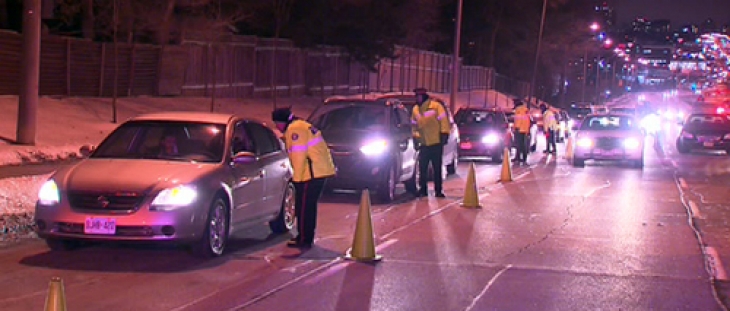
What do you think about journalists and newspapers as moral arbiters?
Maybe the end of 2011 is not the best time to be asking the question, now that the News of the World shenanigans and the multiple failings of Margaret Wente have been added to the modern pile of journalistic betrayals started by Stephen Glass and Jayson Blair.
Or maybe it’s a good time, a time to be reminded that a large, well-funded, secular institution tied to community standards by subscription and the newsstand sales that keep them in business may be the ideal, maybe the only, place to properly report, discuss and agree on such things.
A couple of stories, one from Christmas Day, one from the day after, got me thinking about journalism, morality, ethics and what philosophers like to call the good.
The first was a story on CTV inspired by a tweet by Star food writer Corey Mintz, the other by Star feature writer Oakland Ross, appearing on the front page of the Boxing Day edition, called The Case for Virtue.
First, the controversial one.
Mintz noticed at some point just before Christmas that people were tweeting the locations of RIDE checkpoints, the spots at which police stop people for random breathalyzer tests. The whole point is that their locations are unknown, like speed traps, and the very knowledge that they’re out there, somewhere, is the anchor of their efficacy. The difference: if you’re speeding, knowing about a speed trap somewhere else often makes you slow down in the place where you are. If you’re drunk, hearing about a RIDE checkpoint doesn’t make you less drunk, and it’s unlikely to make you pull over. You will simply alter your route and stay as drunk, and as dangerous.
Mintz named the offending and offensive tweeters – their tags are @mariosettino89, @pilling15, @reptdoto, @1luvtdot and @donaldhorses – and CTV thought this was a good enough hook for a story. Which of course it was. New ways people are using tech: always good for a news hit. Mintz’s original tweet and, to a much greater extent, CTV’s story, are also, unarguably, social goods. People will do all manner of nasty, venal things if they think they’re doing it under cover. But of course, Twitter, not to mention Facebook and the other social media, are not under cover. Tweeting the location of a RIDE stop is not the same as emailing it to a buddy, or even to a mailing list of buddies. This allows people with a conscience and sense of social ethics to remove their cover and, as a result, possibly stop them from doing what they’re doing.
There was some blowback, mostly from the aforementioned jackasses and their friends, saying Mintz didn’t have a right to ruin a student’s career prospects, for instance, by calling him out like this.
But that’s the point, and I’ll make it again (do feel free to tweet them yourselves).
It turns out @mariosettino89 is a journalism student at the University of Western Ontario who would like to be a sports broadcaster some day. Kyle Pilling is a second year student at the University of Guelph who, according to his still-unchanged Twitter bio note, likes “to get really blackout drunk and do stupid shit.” In his Christmas Eve tweet, he suggested that it was “Key to avoid #ride in Newmarket, get off at Davis, and not greenlane.” That hashtag, for those of you unfamiliar with the finer points of Twitter, is meant exclusively to make it easier for someone looking for tweets about RIDE to find his tweet, which means this is not meant only for his 52 followers, but for everyone on Twitter who may be looking for a way to drink and drive with impunity. That’s some stupid shit. @reptdoto’s name seems to be K. Hartz, @1luvtdot is a Thomas Cook employee named Jo C., and @donaldhorses’ is possibly Dwayne Skidmyer.
People posting pictures of themselves drunk or smoking up – Hartz seems to be quite a weed fan – is one career-limiting thing. Passing along information that could lead directly to a death is quite another. And yes, we live in an age when information is produced and transmitted in ways we’re still trying to catch up with. If information is power, power is now in the people’s hands more than ever before. And like Voltaire and Uncle Ben say, power comes with responsibility. If it takes a little shaming – and a reminder that when you type things into your computer, you’re no longer sitting in your Korn-postered room by yourself – to drive that home to some supremely irresponsible undergrads, so be it.
It’s significant that it was Mintz, a journalist, who started this. One of the basic reflexes of a journalist is to report, to name names, broadcast facts, tell stories. But another – and this is what separates him from the rogue tweeters who were also, of course, reporting information – is the instinct to do it with a sense of community, with a sense of morality and ethics. It’s what puts the Star, the Post and the Globe, which concentrate a lot of their reporting on the deeds and misdeeds of government, the military, big and small business, in a different class from the Sun, which spends its currency on stories of high drama or poignancy and little import or practical value.
Mario Settino, for one, has deleted his RIDE tweet and publically apologized. Whether he’s learned to act more responsibly online because he lives in a community that comes with inherent behavioral responsibilities, or to safeguard his career prospects, I don’t know. But the effect, for the time being, is the same, and it’s a good one.
Mintz, and the CTV story, not only served to call these jerks out, but to let their audiences in on an issue of immediate and increasing importance. Discussions about the morality of online behaviour have tended till now to focus on sex: hook-ups, predators, sexting, etc. The ethics of information transmission is a new issue for many, and the fact that it’s as easy to tweet codes for store alarm systems, security guard schedules, schools of children of the famous, addresses of people accused but not convicted of crimes, credit card numbers, CRV codes and so forth means that examining the downsides of social media as soon as possible would be a very good idea.
That’s 1,000 words already, which means I should leave the second half of this chat-the part about media’s ability to be virtue’s immediate, public and lasting reward-to tomorrow.
This article is the first in a two-part series. Read part two here.
Bert Archer writes about media for the Toronto Standard. You can reach him at barcher@torontostandard.com and follow him on Twitter at @BertArcher.














